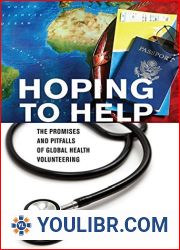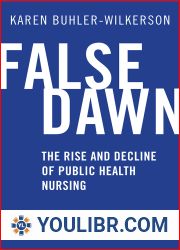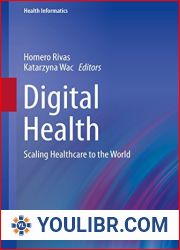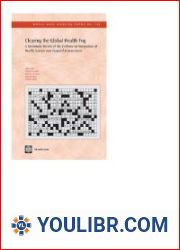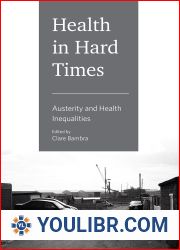
BOOKS - Health Financing in Ghana (Directions in Development - Human Development)

Health Financing in Ghana (Directions in Development - Human Development)
Author: George J. Schieber
Year: June 28, 2012
Format: PDF
File size: PDF 6.7 MB
Language: English

Year: June 28, 2012
Format: PDF
File size: PDF 6.7 MB
Language: English

The book "Health Financing in Ghana: Directions in Development" provides a comprehensive review of Ghana's health financing system, specifically focusing on the National Health Insurance Scheme (NHIS) and its progress towards achieving universal coverage. The book is unique in that it evaluates the strengths and weaknesses of the system based on six basic health system goals: health outcomes, financial protection, consumer satisfaction, equity, efficiency, and financial sustainability. The book begins by highlighting Ghana as a "good practice" in terms of earmarking significant portions of its general revenues for health insurance coverage, providing formal coverage to vulnerable population groups, and extending coverage through the transition of existing community health insurance schemes into a national program. However, recent critiques of the system and questions about its financial sustainability have led to a need for a thorough assessment of the system's performance.
В книге «Финансирование здравоохранения в Гане: Направления развития» содержится всесторонний обзор системы финансирования здравоохранения Ганы, в частности, основное внимание уделяется Национальной системе медицинского страхования (NHIS) и ее прогрессу в достижении всеобщего охвата. Книга уникальна тем, что оценивает сильные и слабые стороны системы на основе шести основных целей системы здравоохранения: результаты в области здравоохранения, финансовая защита, удовлетворенность потребителей, справедливость, эффективность и финансовая устойчивость. Книга начинается с выделения Ганы как «хорошей практики» с точки зрения выделения значительных частей ее общих доходов на медицинское страхование, обеспечения формального покрытия уязвимых групп населения и расширения покрытия за счет перехода существующих схем медицинского страхования на уровне сообщества в национальная программа. Однако недавняя критика системы и вопросы о ее финансовой устойчивости привели к необходимости тщательной оценки эффективности системы.
livre Financement des soins de santé au Ghana : Orientations pour le développement donne un aperçu complet du système de financement des soins de santé au Ghana, en se concentrant en particulier sur le Système national d'assurance maladie (NHIS) et ses progrès vers la couverture universelle. livre est unique en ce qu'il évalue les forces et les faiblesses du système en fonction des six principaux objectifs du système de santé : les résultats en matière de santé, la protection financière, la satisfaction des consommateurs, l'équité, l'efficacité et la viabilité financière. livre commence par souligner que le Ghana est une « bonne pratique » en ce qu'il alloue une partie importante de ses revenus totaux à l'assurance maladie, en assurant une couverture formelle aux groupes vulnérables et en élargissant la couverture en transférant les régimes d'assurance maladie communautaires existants à un programme national. Toutefois, les récentes critiques à l'égard du système et les questions sur sa viabilité financière ont conduit à la nécessité d'évaluer soigneusement son efficacité.
libro Financiing Health in Ghana: Directions for Development ofrece una visión general del sistema de financiación de la salud de Ghana, centrándose en particular en el stema Nacional de Seguro de Salud (NHIS) y su progreso hacia la cobertura universal. libro es único porque evalúa las fortalezas y debilidades del sistema sobre la base de seis objetivos básicos del sistema de salud: resultados en salud, protección financiera, satisfacción del consumidor, equidad, eficiencia y sostenibilidad financiera. libro comienza señalando a Ghana como una «buena práctica» en cuanto a destinar una parte importante de sus ingresos totales al seguro médico, proporcionar cobertura formal a los grupos vulnerables y ampliar la cobertura mediante la transición de los planes de seguro médico comunitarios existentes a un programa nacional. n embargo, las críticas recientes al sistema y las preguntas sobre su sostenibilidad financiera han llevado a la necesidad de evaluar cuidadosamente la eficacia del sistema.
O livro «O Financiamento da Saúde em Gana: Orientações do Desenvolvimento» traz uma revisão abrangente do sistema de financiamento da saúde de Gana, com foco no stema Nacional de Seguro de Saúde (NHIS, na sigla em inglês) e no seu progresso na cobertura universal. O livro é único porque avalia os pontos fortes e fracos do sistema com base nos seis principais objetivos do sistema de saúde: resultados em saúde, proteção financeira, satisfação dos consumidores, justiça, eficiência e sustentabilidade financeira. O livro começa com a atribuição de Gana como uma «boa prática», em termos de atribuição de partes significativas de seus lucros totais para o seguro de saúde, a garantia de cobertura formal de grupos vulneráveis e a ampliação da cobertura através da transferência de planos de seguro de saúde comunitários para o programa nacional. No entanto, críticas recentes ao sistema e questionamentos sobre sua sustentabilidade financeira levaram à necessidade de uma avaliação rigorosa da eficácia do sistema.
Il libro «Finanza per la salute in Ghana: Orientamenti per lo sviluppo» fornisce una panoramica completa del sistema di finanziamento per la salute del Ghana, in particolare il stema Nazionale di Assicurazione Sanitaria (NHIS) e i suoi progressi verso la copertura universale. Il libro è unico nel valutare i punti di forza e le debolezze di un sistema basato su sei obiettivi principali del sistema sanitario: risultati sanitari, protezione finanziaria, soddisfazione dei consumatori, equità, efficienza e sostenibilità finanziaria. Il libro inizia con l'assegnazione del Ghana come «buona pratica» in termini di assegnazione di parti significative del suo reddito totale per l'assicurazione sanitaria, assicurando la copertura formale delle popolazioni vulnerabili e ampliando la copertura attraverso il passaggio dei sistemi di assicurazione sanitaria a livello comunitario a un programma nazionale. Ma le recenti critiche al sistema e le domande sulla sua sostenibilità finanziaria hanno portato alla necessità di valutare attentamente l'efficacia del sistema.
Das Buch „Healthcare Finance in Ghana: Directions of Development“ gibt einen umfassenden Überblick über das ghanaische Gesundheitsfinanzierungssystem, insbesondere über das National Health Insurance System (NHIS) und seine Fortschritte bei der Erreichung einer universellen Abdeckung. Das Buch ist insofern einzigartig, als es die Stärken und Schwächen des Systems auf der Grundlage von sechs Hauptzielen des Gesundheitssystems bewertet: Gesundheitsleistung, finanzieller Schutz, Kundenzufriedenheit, Fairness, Effizienz und finanzielle Nachhaltigkeit. Das Buch beginnt mit der Hervorhebung Ghanas als „gute Praxis“ in Bezug auf die Zuweisung wesentlicher Teile seines Gesamteinkommens an die Krankenversicherung, die Gewährleistung einer formellen Deckung für gefährdete Bevölkerungsgruppen und die Ausweitung der Deckung durch die Umstellung bestehender Krankenversicherungssysteme auf Gemeinschaftsebene auf ein nationales Programm. Die jüngste Kritik an dem System und Fragen nach seiner finanziellen Nachhaltigkeit haben jedoch dazu geführt, dass die Wirksamkeit des Systems sorgfältig bewertet werden muss.
Książka Finansowanie zdrowia w Ghanie: Kierunki rozwoju zapewnia kompleksowy przegląd systemu finansowania zdrowia w Ghanie, w szczególności koncentrując się na Narodowym Systemie Ubezpieczeń Zdrowotnych (NHIS) i jego postępów w kierunku powszechnego zasięgu. Książka jest wyjątkowa, ponieważ ocenia mocne i słabe strony systemu w oparciu o sześć podstawowych celów systemu opieki zdrowotnej: wyniki zdrowotne, ochronę finansową, zadowolenie konsumentów, sprawiedliwość, efektywność i stabilność finansową. Książka rozpoczyna się od podkreślenia, że Ghana jest „dobrą praktyką” w zakresie przydziału znacznych części swoich całkowitych dochodów ubezpieczeniom zdrowotnym, zapewnienia formalnego pokrycia słabszej populacji oraz rozszerzenia zasięgu poprzez przekształcenie istniejących wspólnotowych systemów ubezpieczeń zdrowotnych w program krajowy. Jednak niedawna krytyka systemu i pytania dotyczące jego stabilności finansowej doprowadziły do potrzeby dokładnej oceny skuteczności systemu.
הספר Health Financing in Gana: Directions for Development מספק סקירה מקיפה של מערכת מימון הבריאות של גאנה, המתמקדת במיוחד בתכנית הלאומית לביטוח בריאות (NHIS) ובהתקדמותה לקראת כיסוי אוניברסלי. הספר ייחודי בכך שהוא מעריך את החוזקות והחולשות של המערכת בהתבסס על שש מטרות של מערכת בריאות: תוצאות בריאותיות, הגנה פיננסית, שביעות רצון צרכנית, הון עצמי, יעילות וקיימות פיננסית. הספר מתחיל בכך שהוא מדגיש את גאנה כ ”פרקטיקה טובה” במונחים של הקצאת חלקים משמעותיים מהכנסותיה הכוללות לביטוח בריאות, מתן כיסוי רשמי לאוכלוסיות פגיעות, והרחבת הכיסוי על ידי העברת תוכניות ביטוח בריאות קיימות לתוכנית לאומית. עם זאת, הביקורת שהוטחה לאחרונה על המערכת ועל השאלות בנוגע לקיימות הפיננסית שלה הובילה לצורך בהערכה מדוקדקת של יעילות המערכת.''
Gana'da Sağlık Finansmanı: Kalkınma için Talimatlar kitabı, özellikle Ulusal Sağlık gortası Programı'na (NHIS) ve evrensel kapsama alanına yönelik ilerlemesine odaklanan Gana'nın sağlık finansmanı sistemine kapsamlı bir genel bakış sunmaktadır. Kitap, sistemin güçlü ve zayıf yönlerini altı temel sağlık sistemi hedefine dayanarak değerlendirdiği için benzersizdir: sağlık sonuçları, finansal koruma, tüketici memnuniyeti, eşitlik, verimlilik ve finansal sürdürülebilirlik. Kitap, Gana'yı toplam gelirlerinin önemli bir bölümünü sağlık sigortasına ayırma, savunmasız nüfuslara resmi teminat sağlama ve mevcut toplum temelli sağlık sigortası programlarını ulusal bir programa dönüştürerek kapsamı genişletme açısından'iyi bir uygulama'olarak vurgulayarak başlıyor. Bununla birlikte, son zamanlarda sistemin eleştirilmesi ve finansal sürdürülebilirliği ile ilgili sorular, sistemin etkinliğinin dikkatli bir şekilde değerlendirilmesine ihtiyaç duyulmasına neden olmuştur.
يقدم كتاب تمويل الصحة في غانا: اتجاهات التنمية لمحة عامة شاملة عن نظام التمويل الصحي في غانا، مع التركيز بشكل خاص على نظام التأمين الصحي الوطني (NHIS) والتقدم المحرز نحو التغطية الشاملة. الكتاب فريد من نوعه من حيث أنه يقيم نقاط القوة والضعف في النظام بناءً على ستة أهداف أساسية للنظام الصحي: النتائج الصحية، والحماية المالية، ورضا المستهلك، والإنصاف، والكفاءة، والاستدامة المالية. يبدأ الكتاب بتسليط الضوء على غانا باعتبارها «ممارسة جيدة» من حيث تخصيص أجزاء كبيرة من إجمالي إيراداتها للتأمين الصحي، وتوفير تغطية رسمية للسكان الضعفاء، وتوسيع التغطية عن طريق تحويل خطط التأمين الصحي المجتمعية الحالية إلى برنامج وطني. غير أن الانتقادات التي وجهت مؤخرا إلى النظام والأسئلة المتعلقة باستدامته المالية أدت إلى ضرورة إجراء تقييم دقيق لفعالية النظام.
《加納的保健籌資:發展方向》一書全面審查了加納的保健籌資制度,特別側重於國家健康保險制度及其在實現普及保險方面的進展。該書的獨特之處在於,它根據醫療保健系統的六個主要目標來評估系統的優缺點:健康成果,財務保護,消費者滿意度,公平性,效率和財務可持續性。該書首先強調了加納的「良好做法」,即將其總收入的大部分分配給健康保險,為弱勢群體提供正式保險,並通過將現有的社區健康保險計劃轉變為國家計劃來擴大覆蓋範圍。但是,最近對該系統的批評以及對其財務可持續性的質疑導致有必要仔細評估該系統的有效性。








 49
49  2 TON
2 TON

